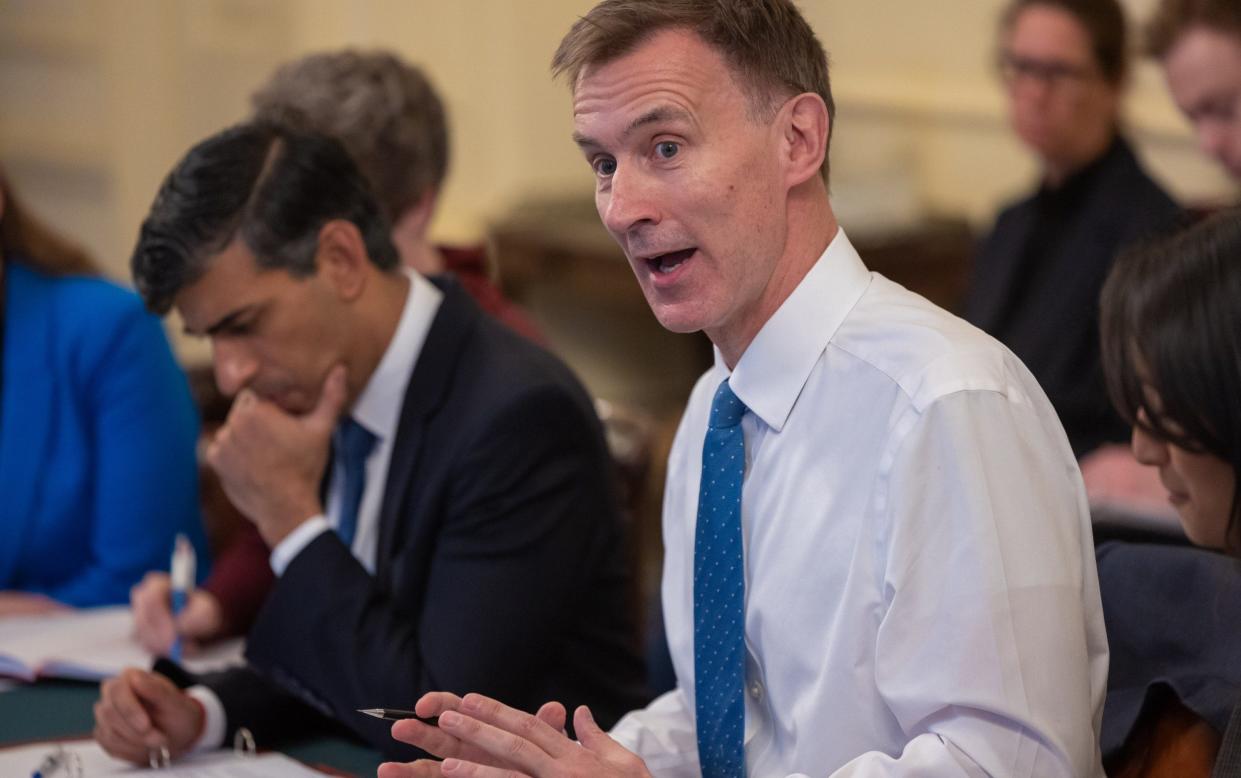Public spending to plunge by £19bn in real terms over next five years

Public spending will plunge by £19.1bn in real terms over the next five years in plans that have been described as “implausible” by economists.
Public services with unprotected budgets such as prisons, police, courts and local government will face a 2.3pc spending squeeze from 2025-26, the Government’s fiscal watchdog said.
This is equivalent to a £19.1bn cut in real terms, the Office for Budget Responsibility (OBR) said, as inflation had proved more persistent than anticipated earlier in the year.
While spending is not allocated to specific areas beyond 2024-25, certain budgets such as for the NHS, defence and education have been ringfenced.
This means that while overall cash for day-to-day needs will rise by 0.9pc in real terms, many areas will face significant cuts.
Should the Government choose to raise defence spending from 2pc to 2.5pc and ramp up overseas aid as planned, cuts to unprotected spending could amount to as much as 4.1pc.
The plans, which only take effect on the other side of the election, have been widely branded unrealistic by economists.
The Institute for Government said they amounted to Mr Hunt abdicating his responsibilities to a future chancellor.
Thomas Pope from the IfG said: “The plans that were set out in March that were £19bn more generous, were already very tight and probably not plausible. And these plans are even less so.”
He said that given the state of public services it did not feel “deliverable at all” and would likely require higher growth or setting out a credible plan on what the state would no longer deliver.
Otherwise, the options were “higher taxes” or the Government deciding “it is not committed to reducing debt as a share of GDP”, he said.
Mr Pope added: “We know that more councils are on the brink of bankruptcy so certainly it wouldn’t help.”
The Resolution Foundation, a think tank, said it was unlikely a future government would be able to deliver the cuts.
Torsten Bell, of the Resolution Foundation, said: “The giveaways announced today are funded by handing whoever wins the next election implausibly large spending cuts. Tax cuts to boost business investment are welcome, but undermined by plans to cut public investment by over a third – it’s hard to think of a more anti-growth policy.”
Mr Pope said the criminal justice system was “particularly vulnerable” to cuts. It comes against a backdrop of a surge in crime on Britain’s high streets, with the Government being accused by retail bosses of decriminalising shoplifting.
The OBR also said public sector investment would be frozen in real terms until 2028-29, meaning there will be no extra cash to spend on areas such as public buildings, IT systems and infrastructure.
The Chancellor told the House of Commons on Wednesday: “We are sustaining the record 2020 increase in capital spending in cash terms until the end of the forecast.”
However, the OBR noted that because of rising inflation, capital spending – money used to maintain Britain’s roads and other infrastructure – will remain broadly flat in cash terms. The Resolution Foundation said it was equivalent to a cut of around £20bn.
Mr Hunt said the Government was meeting its fiscal rule that public sector borrowing must be below 3pc of GDP most years in the forecast.
He said: “Some of this improvement is from higher tax receipts from a stronger economy but we also maintain a disciplined approach to public spending.”
Tax cuts ‘might not be sustainable’
Bee Boileau from the Institute for Fiscal Studies said ministers would struggle to stick to such cuts, suggesting “today’s tax cuts might not prove to be sustainable”.
She warned that the cuts to public investment were of such a scale that they were no match even for Labour’s £20bn-a-year green spending plans.
Ms Boileau said: “Past experience strongly suggests that when Chancellors come to actually dividing the spending pot up between departments, they decide that the pot needs to be bigger after all, and announce a top-up.”
The OBR highlighted that crown courts were suffering record high backlogs of 65,000 in August and that 11 local authorities had declared bankruptcy since 2018.
It warned that delivering the reductions in day-to-day spending “would present challenges”.

 Yahoo News
Yahoo News 
